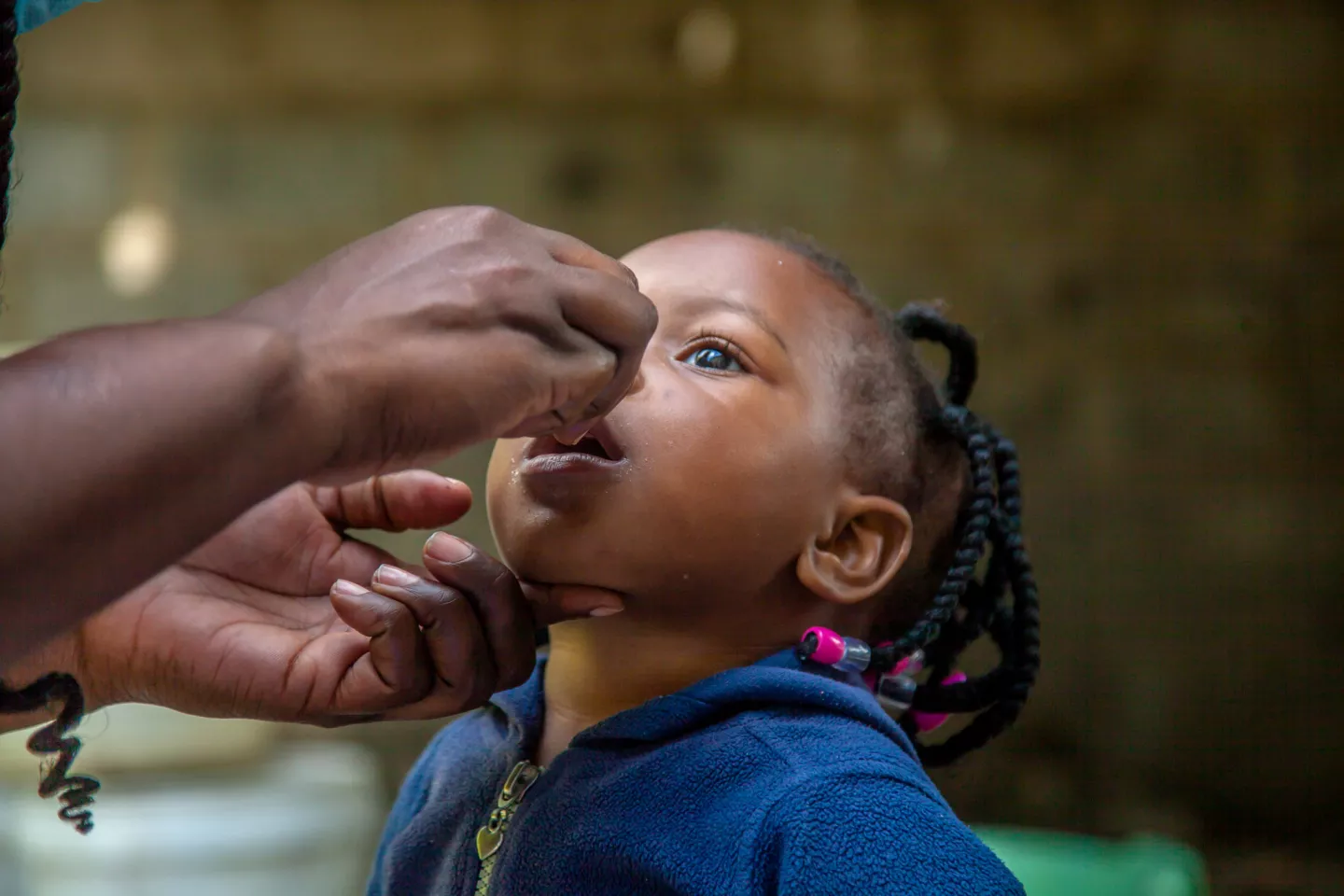
In a US Senate hearing on Tuesday September 9, 2025, attorney Aaron Siri revealed the results of a large study that found vaccinated children were far more likely to develop chronic disease than unvaccinated kids.
The study never underwent peer review and was never published, because the authors – staunch vaccine supporters – told Siri they were concerned about losing their jobs or reputations because their findings contradicted the official public health narrative and vaccine policy.
Siri’s testimony, delivered during Tuesday’s Senate hearing, “How the corruption of science has impacted public perception and policies regarding vaccines,” addressed the study’s origins, findings and suppression.
The study involved over 18,000 children enrolled in Henry Ford Health system’s insurance plan in Michigan.
“The results are astonishing,” Siri told The Defender. “For example, vaccinated children had 4.29 times the rate of asthma, 3.03 times the rate of atopic disease (a group of allergic conditions), 5.96 times the rate of autoimmune disease and 5.53 times the rate of neurodevelopmental disorder.”
These findings were statistically significant – even when accounting for gender, race, birthweight, premature birth, and respiratory distress or trauma at birth.
But rather than publishing the results, the study authors and their bosses at Henry Ford Health refused to make them public – even though the lead author previously assured Siri and Del Bigtree he would publish the results, whatever the findings.
Today’s hearing was the third so far this year on vaccine injury held by the Permanent Subcommittee on Investigations. The study’s results were entered into the congressional record.
Senator Ron Johnson (Republican-Wisconsin), subcommittee chair who organised the hearing, told The Defender he hoped the hearing would open people’s minds so that “more Americans have their eyes open to the reality and truth.”
He noted the fierce resistance that US Health Secretary Robert F. Kennedy Jr faced at last week’s Senate hearing from senators who had “totally closed minds.”
Johnson said he didn’t presume to know the full truth about vaccines’ impact on health. “I don’t know because we haven’t even been allowed to ask the question – much less get the answer.” In addition to Siri, witnesses included Toby Rogers and Dr Jake Scott.
The hearing pitted staunch vaccine supporters Scott and Senator Richard Blumenthal (Democratic-Connecticut), subcommittee ranking member, against Johnson, Siri and Rogers.
There were tense exchanges about what constitutes bias and corruption in research.
Blumenthal said he “deeply feared” for the future of public health in the US and claimed Kennedy wanted staff who embraced the secretary’s “dogma.”
According to Siri, the study authors looked at health data of 18,468 kids born between 2000 and 2016 who were enrolled in the Henry Ford Health system’s insurance plan.
Siri published excerpts from the study’s manuscript, including its results, in his new book “Vaccines, amen: the religion of vaccines.”
Released on September 4, the book challenges what he calls the “religion” of vaccines. Siri said: “It is time to start treating vaccines as what they are, consumer products, not items of worship. We can save children from harm from infectious disease and from vaccines. We can do both.”
The study authors divided kids into two groups: vaccinated and unvaccinated. Nearly 2,000 were in the unvaccinated group. Roughly 16,500 kids received one or more vaccines, with the median number of vaccines being 18.
The authors found links “between vaccination and the incidence of asthma, atopic and autoimmune disease, and mental health and neurodevelopmental disorders including developmental delay and speech disorder,” according to a copy of the study Siri obtained.
The authors calculated incident rate ratios – the odds that a vaccinated child would develop a given medical condition versus an unvaccinated child. Overall, vaccinated children were 2.48 times more likely to be diagnosed with a chronic health condition than unvaccinated kids.
Vaccinated children were over four times more likely to be diagnosed with a speech disorder than unvaccinated children and nearly six times more likely to be diagnosed with an autoimmune disease.
In some cases, the authors couldn’t do the calculation because no child in the unvaccinated group had the target disease. For instance, none of the unvaccinated had diabetes, brain dysfunction, behavioural dysfunction or tics.
The authors said the study couldn’t be used to prove vaccines caused the chronic conditions but they concluded that the findings warranted further research.
According to Siri, the Henry Ford Health study came about after the Informed Consent Action Network (ICAN) in early 2017 searched for a highly qualified scientist to do a study comparing health outcomes between vaccinated and unvaccinated kids.
Bigtree, ICAN’s founder, had previously met Dr Marcus Zervos, co-director of the Centre for Emerging and Infectious Diseases at Wayne State University and head of the Infectious Diseases division at Henry Ford Health.
Siri, who represents ICAN and Bigtree met with Zervos. “While Dr Zervos was a vaccine believer,” Siri told The Defender, “he showed signs of possibly being open to conducting some actual safety science.”
Siri and Bigtree initially thought it would be advantageous for the study to analyse children’s health data from the Centres for Disease Control and Prevention’s Vaccine Safety Datalink (VSD) database. But accessing VSD data was a complicated proposition.
Zervos instead suggested he and his colleagues do the study using data they already could access through Henry Ford Health’s vast database. Henry Ford Health runs over 550 medical sites in Michigan, according to its website.
Siri said: “Once Dr Zervos appeared committed to performing the study, I made two requests. They were merely requests because I was in no position to dictate or demand anything.
“The first was that they would publish the study no matter what the result. The second was that the unvaccinated group would truly be unvaccinated – meaning no vaccines – so that the study would actually assess health outcomes between exposed (one or more vaccines) and unexposed (no vaccines) children.”
Zervos “looked us right in the eyes and assured us that he was a man of integrity and would publish the results, whatever the finding,” Siri recalled. Zervos also agreed to use a truly unvaccinated control group.
In early 2020, Siri received a copy of the study but discovered that it had not been submitted to a journal for publication.
Lois Lamerato, who had worked on the study with Zervos, told Siri she and Zervos both thought the study was well done and worthy of publication. But the “higher-ups” at Henry Ford Health, to whom she was required to send a copy before submission, did not want to submit it. Lamerato also said she was worried the study, if published, would make doctors feel uncomfortable.
According to Siri, Henry Ford Health officials didn’t provide any substantive explanation for not wanting the study published. Siri said: “The real reason it was not submitted for publication, no doubt, was because of its finding that vaccinated children suffered from multiple times the rate of various serious ailments.
“Had the finding shown vaccinated children were healthier or at least had the same outcomes as unvaccinated children, then this study would have no doubt been submitted for publication and published many years ago. Instead, it remained hidden from the world.”
Scott, an infectious disease specialist at Stanford Medicine, presented information during the hearing on studies supporting vaccine safety claims. He said he had no financial conflicts of interest, as his research is either self-funded or funded by Stanford.
Rogers, a fellow with the Brownstone Institute and independent journalist, testified on published research related to the causes of autism.
The US has yet to start writing its report on the possible causes of autism, US Food and Drug Commissioner Marty Makary told Bloomberg yesterday. Rogers has researched autism since 2015 when his then-partner’s son was diagnosed with autism. At the time, he was pursuing a doctorate in political economy at the University of Sydney.
According to Rogers: “I went to the CDC’s webpage on the causes of autism. As a PhD student, I was trained to focus on primary source documents, so I read all of the references in their footnotes. … To my surprise, I quickly discovered that the CDC’s narrative did not add up.”
He also noticed that the US government wasn’t responding with a sense of urgency to the sharp increase in autism, despite the cost already having reached “hundreds of billions of dollars.”
So he changed his doctoral thesis topic to “The Political Economy of Autism” and spent four years analysing published materials on autism’s prevalence, causation and cost.
Roger’s thesis, which passed peer review in 2019, is among the top 10 most-downloaded doctoral research papers in the history of the University of Sydney. He gave senators a birds-eye view of the published literature. “Here are the facts,” Rogers said.
Twenty-two studies claim that vaccines don’t cause autism, but none have completely unvaccinated control groups. “So unfortunately,” Rogers said, “if you want to understand what’s causing the autism epidemic, these studies are of no use.”
Meanwhile, six published studies that included an unvaccinated control group found an increased risk of autism in the vaccinated. “Unfortunately, these studies have been systematically suppressed and ignored by the mainstream media and the medical establishment,” he said.
Rogers cited additional studies that showed an increase in autism following vaccination.
For instance, a 2018 study showed that up to 88 per cent of autism cases are characterised by autistic regression – meaning a child who had been developing normally suddenly begins to lose skills, such as speech and eye contact. This suggests an acute toxic exposure triggered the development of autism, Rogers said.
“We now have eyewitness testimony from thousands of parents that the acute toxic exposure that preceded the autistic regression was a ‘well-baby’ vaccine appointment,” Rogers said.
According to Rogers, purely genetic causes of autism wouldn’t make sense. “Genes don’t suddenly create epidemics – the human genome just doesn’t change that fast.” Most studies that look at both genes and environmental toxins, like pesticides and heavy metals, don’t control for vaccines as a possible covariate or confounder.
This makes it impossible to tease out the true impact of the toxin from the possible impact of the vaccine.
“The best available evidence suggests that anything that causes an immune activation event — an infectious disease, an industrial toxicant, or a vaccine — can cause autism.”
According to Rogers, autism is most likely caused by “vaccines and about a dozen additional toxicants.”
He added, “If we stop exposing children to these hazards in the first place, that would stop the epidemics of chronic illness in children. Now we must summon the political will to act.”
- A Tell Media report / By Suzanne Burdick- A reporter and researcher for The Defender







